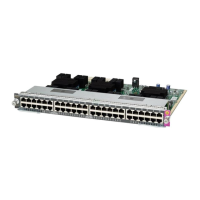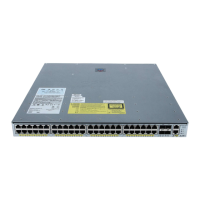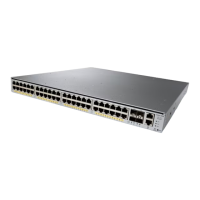66-2
Software Configuration Guide—Release IOS XE 3.6.0E and IOS 15.2(2)E
OL-28731-01
Chapter 66 Configuring Ethernet OAM and CFM
About Ethernet CFM
• Ethernet CFM and Ethernet OAM Interaction, page 66-51
About Ethernet CFM
Ethernet CFM is an end-to-end per-service-instance (per-VLAN) Ethernet layer OAM protocol. It
includes proactive connectivity monitoring, fault verification, and fault isolation. End-to-end can be
provider-edge-to provider-edge (PE-to-PE) device or customer-edge-to-customer-edge (CE-to-CE)
device. Ethernet CFM, as specified by IEEE 802.1ag, is the standard for Layer 2 ping, Layer 2 traceroute,
and end-to-end connectivity verification of the Ethernet network.
These sections contain conceptual information about Ethernet CFM:
• Ethernet CFM and OAM Definitions, page 66-2
• CFM Domain, page 66-2
• Maintenance Associations and Maintenance Points, page 66-4
• CFM Messages, page 66-5
• Crosscheck Function and Static Remote MEPs, page 66-5
• SNMP Traps and Fault Alarms, page 66-5
• Configuration Error List, page 66-6
• IP SLAs Support for CFM, page 66-6
Ethernet CFM and OAM Definitions
The following table describes many of the terms in this chapter that are related to OAM and CFM
features:
CFM Domain
A CFM maintenance domain is a management space on a network that is owned and operated by a single
entity and defined by a set of internal boundary ports. You assign a unique maintenance level (from 0 to
7) to define the domain hierarchy. The larger the domain, the higher the level. For example, as shown in
Figure 66-1, a service-provider domain would be larger than an operator domain and might have a
maintenance level of 6, while the operator domain maintenance level would be 3 or 4.
Term Definition
CC Continuity Check
CFM Connectivity Fault Management
EI Ethernet Infrastructure or EVC Infrastructure
EVC Ethernet Virtual Circuit
MEP Maintenance Endpoint
MIP Maintenance Intermediate Point
OAM Operations Administration and Maintenance
UNI User to Network Interface
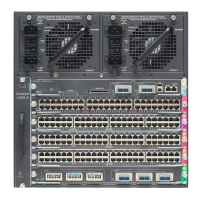
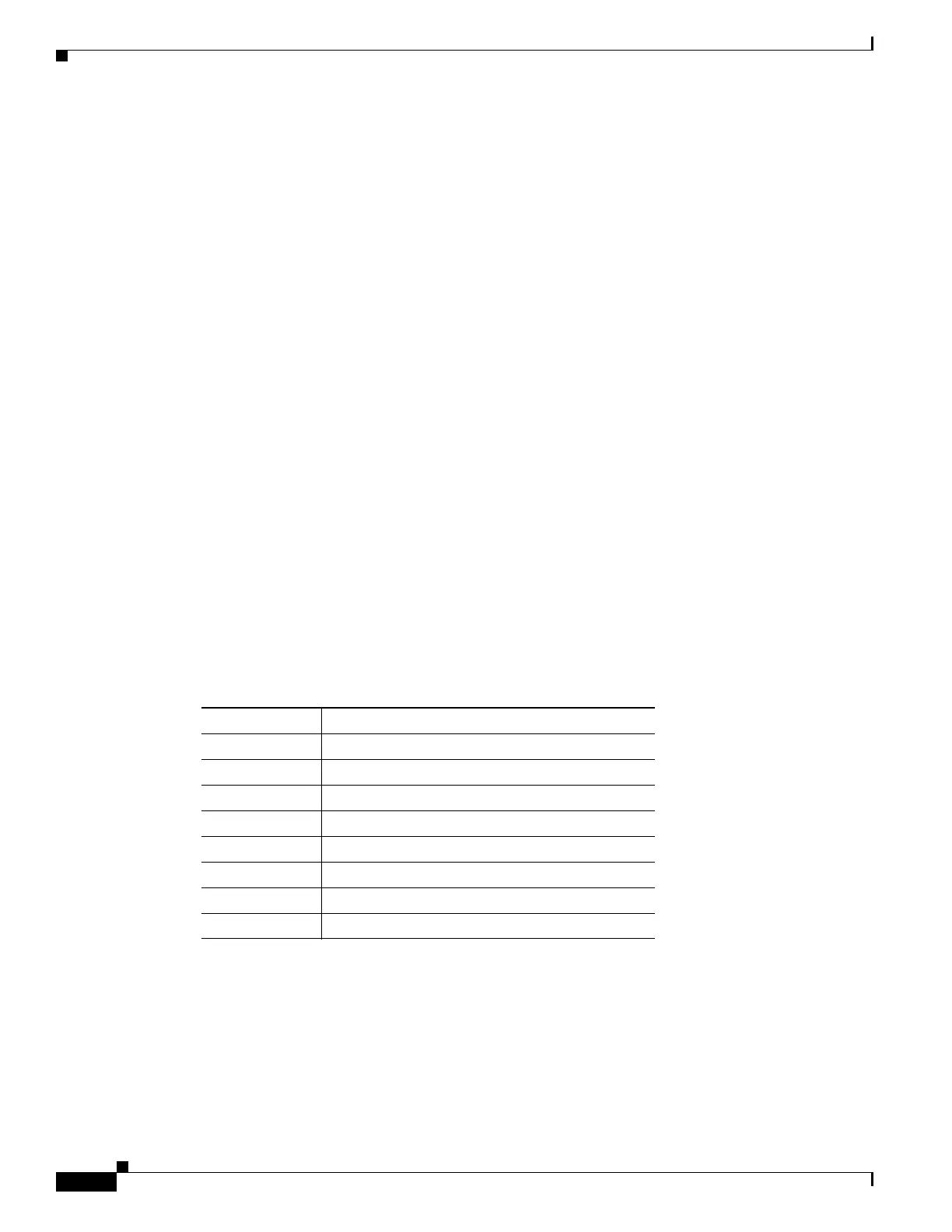